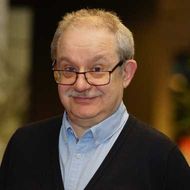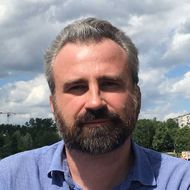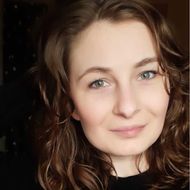- A
- A
- A
- ABC
- ABC
- ABC
- А
- А
- А
- А
- А
- HSE University
- Faculties
- Faculty of Social Sciences
- School of Sociology
- News
- I was not too sure what to study...
Address: 101000, Moscow,
11 Myasnitskaya Ulitsa.
Phone: 8 (495) 772-95-90 *12349
Email: izangieva@hse.ru
The School of Sociology aims to train future social analysts in sociological reasoning to address the needs of social life, business, politics, public administration, and the media. To this end, the school works to develop a close link between education and research, as well as application-oriented education, internationalization of research and education, and close networks with major employers on the labour market.
In press
Abashkin V., Abdrakhmanova G., Vishnevskiy K. et al.
M.: HSE, 2025.
Nastina E., Andiappan M., Miles A. et al.
Journal of Social Psychology. 2025. P. 1-14.
Aristova N., Chadeev V., Iakimova O.
In bk.: 2024 17th International Conference on Management of Large-Scale System Development (MLSD). IEEE, 2024. P. 1-4.
OSF, 2024
Address: 101000, Moscow,
11 Myasnitskaya Ulitsa.
Phone: 8 (495) 772-95-90 *12349
Email: izangieva@hse.ru

I was not too sure what to study...
I was in Mexico at the time. I was not too sure what to study. I first enrolled in mathematics, but then switched to sociology – but of course without really knowing what sociology was all about. However, for some time I felt I should have studied philosophy instead. But then I kept coming back to sociology, which I think is a fascinating discipline, especially when it works together with other disciplines (e.g. history, economics, philosophy) to tackle interesting questions.
Your PhD work was about the social grounds of compassion. Could you, please, describe what that research was about? What theoretical grounds did it have? What data did you rely upon? What results did you get?
My PhD sought to study compassion sociologically through a study of charity shop volunteers in the United Kingdom. Charity shops are second-hand shops that raise money for charitable organisations such as Oxfam or The Salvation Army, which play a very salient role in British society. Theoretically, I drew primarily on sociological writings on suffering, compassion, and solidarity (for example by
Robert Bellah, Robert Wuthnow, Candace Clark, Norbert Elias, Pitirim Sorokin, and Emile Durkheim); but also on the philosophy of Martha Nussbaum. My data were mostly obtained from interviews with said volunteers. My findings relate to the way in which ‘the social’ mediates people’s engagement with charitable organisations (whose chief goal is to alleviate suffering, and where compassion has been institutionalised). So, for example, I found how volunteering allowed people to find a sense of meaning and structure after (often painful) events of social dislocation, but also that volunteering is embedded in moral obligations of reciprocity, and collective representations of suffering and worth.
You work with socio-emotional economy of sympathy. Could you, please, clarify what exactly do you mean speaking about the economy of this type?
This is a term sociologist Candace Clark came up with in the late 1990s. It is a metaphor that refers to how sympathy is distributed in any given society. It construes sympathy as a resource (an emotional resource) which can be exhausted if overused, and thus demands to be administered. Clark found that people allocate their sympathy in patterned ways, in ways that follow certain rules.
What are you working on now? What is your current research about?
Right now I am trying to finish revising a paper on the ‘socio-emotional economy of sympathy’ in the UK, and another one on the way in
which charity volunteering can be instrumental in helping people overcome experiences of social dislocation. I also have some work in progress on the idea of ‘social mechanism’.
Are you going to study the case of Russia in some context?
Yes. I have recently begun writing a paper on civil society in Russia with a colleague of mine from Belarus, Aleh Ivanou. And I would love to write something about compassion in Russia at some point, as well as to collaborate with colleagues and students at HSE in order to undertake research on other topics germane to Russian society/history.
This year at HSE you are going to deliver two courses “Sociology of development and underdevelopment” and “The
sociology of civil society and the third sector”. What are these courses about? Could you, please, give a brief description?
The course on the Sociology of Development takes as a starting point the question, “why are some societies so wealthy and other so poor?” And also the question whether it is possible to bridge (or at least reduce) the gap between rich and poor societies. There are many sides to these questions – a humanistic side, a theoretical side, and a policy side (at least). It is an interesting course, I find, in that it connects with wider questions to do with, for example, social change, the idea of progress, the possibilities of bringing about ‘good societies’ through collective, intentional action, and the nature of modernity. My intention during this course is to draw out all of these connections. The course also seeks to point at the need to deal with ‘material concerns’, which sociologists have largely neglected in the past few decades, but which are of the essence if we try to make sense of today’s world.
The course on civil society and the third sector will interrogate the connection between these two concepts and sociological debates about topics such as civility, democracy, altruism, morality, development, and social solidarity. These are themes which have attracted considerable sociological attention in recent years. For example, the American Sociological Association has just established a section for the study of “Altruism, Morality, and Social Solidarity”, to which many sociologists from Russia are contributing.
Are you going to be a strict teacher? What should students do (or shouldn’t do) to succeed in your courses?
I will try to reach a balance between being flexible and being strict. I will also do my best to be a helpful teacher, one that provides lenty of feedback, for example. As for what students should do, as long as they engage with the course assignments and take responsibility for their own learning process, they will be fine.
- About
- About
- Key Figures & Facts
- Sustainability at HSE University
- Faculties & Departments
- International Partnerships
- Faculty & Staff
- HSE Buildings
- Public Enquiries
- Studies
- Admissions
- Programme Catalogue
- Undergraduate
- Graduate
- Exchange Programmes
- Summer Schools
- Semester in Moscow
- Business Internship
-
https://elearning.hse.ru/en/mooc/
Massive Open Online Courses
-
https://www.hse.ru/en/visual/
HSE Site for the Visually Impaired
-
http://5top100.com/
Russian Academic Excellence Project 5-100
- © HSE University 1993–2025 Contacts Copyright Privacy Policy Site Map
- Edit



